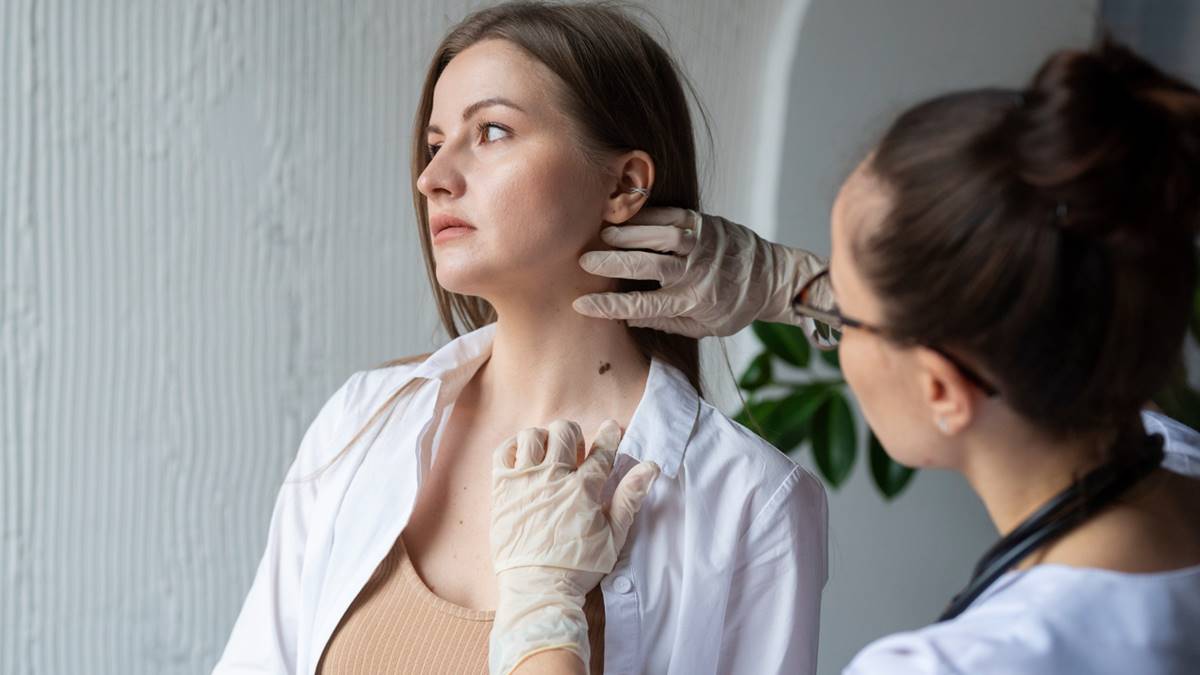You’ve been sneezing, your eyes are watery, and your sinuses feel like they’re under pressure. Classic allergy season, right? But now you’ve noticed something new—a small, tender lump under your jaw or behind your ear. Suddenly, you’re wondering: Can allergies cause swollen lymph nodes? Or is this something more serious?
Let’s walk through what lymph nodes do, how allergies affect them (or don’t), and when it’s time to take a closer look.
What Are Lymph Nodes, Anyway?
Lymph nodes are small, bean-shaped glands that act like immune system checkpoints. They’re part of your lymphatic system, which helps filter out bacteria, viruses, and other unwanted particles. When something triggers your immune response—like an infection—nearby lymph nodes often swell as they gear up to fight.
Common places you might feel swollen lymph nodes include:
-
Under the jaw or chin
-
In the neck
-
Behind the ears
-
In the armpits or groin
The swelling is usually due to increased immune cell activity and fluid buildup inside the node. It’s a sign your immune system is on alert.
Can Allergies Actually Cause Lymph Nodes to Swell?
The short answer: not usually—but sometimes, yes.
Allergies by themselves don’t typically cause lymph nodes to swell noticeably, because the immune reaction is usually localized and not driven by infection. That said, there are a few exceptions.
Here’s how it breaks down:
1. Mild Swelling From Local Inflammation
If you have seasonal allergic rhinitis (aka hay fever) or sinus allergies, your body releases histamines in response to pollen, dust mites, or pet dander. This can cause congestion, sinus pressure, and drainage—leading to mild irritation in the tissues near lymph nodes.
In some cases, that can cause the nodes—especially in the neck or under the jaw—to feel slightly enlarged or tender. But it’s usually subtle and short-lived.
2. Secondary Infections Make the Difference
Often, people with allergies are more prone to sinus infections, ear infections, or post-nasal drip. These infections—not the allergies themselves—are what commonly lead to noticeable lymph node swelling.
So, if your allergies have triggered a secondary bacterial or viral infection, your lymph nodes may swell as part of that immune response. In this case, you may also experience:
-
Facial pain or pressure
-
Thick yellow or green mucus
-
Fever or chills
-
Fatigue that feels deeper than allergy-related tiredness
This is your cue to talk to a doctor—because treating the infection (rather than just the allergy) may be key to resolving the swelling.
3. Skin Allergies and Localized Reactions
If you’ve had a strong allergic reaction on your skin, such as from a bug bite, nickel, or poison ivy, the nearest lymph node may swell in response. This is your immune system reacting to what it perceives as a threat.
Again, the swelling is typically minor and resolves once the skin irritation improves.
When Should You Be Concerned?
Not all swollen lymph nodes are benign. Here are a few red flags that suggest it’s time to check in with a healthcare provider:
-
Swelling that lasts more than 2–3 weeks
-
Nodes that feel hard, fixed, or rapidly growing
-
Associated fever, night sweats, or unexplained weight loss
-
Swelling without any clear reason (e.g., no illness or allergy symptoms)
-
Painful or inflamed skin over the node
Most allergy-related lymph node changes are small, soft, and go away on their own. But persistent or unusual swelling should always be evaluated to rule out other causes—like infection, autoimmune conditions, or (rarely) lymphoma.
How to Help Your Body Respond
If you’re dealing with allergy symptoms and mild lymph node tenderness, here are a few ways to support your body:
-
Manage allergies proactively with antihistamines or nasal sprays
-
Stay hydrated to help your lymphatic system function smoothly
-
Apply warm compresses to tender areas for comfort
-
Rest when your body feels inflamed—even allergies can be draining
The more effectively you manage your allergies, the less likely they are to spiral into secondary infections or complications.
Your Immune System Speaks in Subtle Ways
Lymph nodes are like your body’s early warning system. They swell, not to scare you, but to signal that something has caught your immune system’s attention.
In the case of allergies, that signal is usually faint—but real. So the next time you feel a little lump under your jaw while your eyes are watering from spring blooms, don’t panic. Just listen. Your body is speaking—sometimes all it asks is that you pay closer attention.
